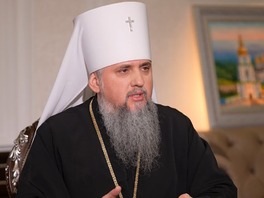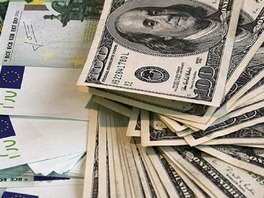The oil business brings the Russian war machine between $7 billion and $11 billion in excess profits through sanctions violations.
The "Foreign Economic Association 'Promsyrieimport'," owned by the Ministry of Energy of the Russian Federation, has become the monopolistic supplier of fuel to the temporarily occupied territories of Luhansk, Donetsk regions, and Crimea. This was discussed in an investigation by liga.net, dated back to 2017, as reported by the Ukrainian publication Kommersant.
At that time, journalists thoroughly investigated the volume of fuel supplies to the Donetsk People's Republic (DNR) by the mentioned company.
"In 2016, Promsyrieimport supplied over 200,000 tons of gasoline, diesel fuel, and motor oils to the occupied areas of Donbas, amounting to $116 million. This accounted for 86% of all fuel supplies to the DNR and 100% of all motor fuel (except for liquefied gas). In the first half of 2017, Promsyrieimport supplied 93,000 tons, amounting to $64 million," the article stated.
It was also noted that Promsyrieimport supplied all petroleum products to the self-proclaimed republics, purchasing them from Bashneft refineries, owned by Rosneft. In the fall of 2016, Ukraine's National Security and Defense Council (NSDC) added Bashneft to its sanctions list.

New Sanctions
In March 2021, the "Foreign Economic Association Promsyrieimport" also found itself on the NSDC's sanctions list for three years.

On June 24 of this year, these sanctions were extended by a presidential decree for an additional 10 years.

Individuals Outside Sanctions
At the same time, the criminal activities of the joint-stock company "Foreign Economic Association 'Promsyrieimport'" are linked to specific private individuals. In particular, the general director of the enterprise is Mikhail Silantiev.
However, neither this name nor the names of the members of the Board of Directors of "Promsyrieimport" are currently included in the sanctions list of Ukraine's National Security and Defense Council (NSDC).
"Foreign Economic Association 'Promsyrieimport'" and Andrey Dogaev (former first deputy of Silantiev) were found in the sanctions lists of the Office of Foreign Assets Control (OFAC) of the U.S. Department of the Treasury. They were added to these lists in 2018 for their involvement in schemes to supply oil from Syria to Iran, bypassing U.S. sanctions, and for financing terrorist organizations such as Hamas and Hezbollah, according to the official website of the U.S. Department of the Treasury.

Silantiev’s Sanctions-Evasion Scheme
Even in this situation, Ukraine has not imposed its own sanctions against Silantiev and his associates. However, the example of Russian billionaire Roman Abramovich and his company Evraz PLC shows that Ukraine has previously acted in parallel with U.S. sanctions decisions.
According to Ukraine’s Unified State Register of Court Decisions, based on a ruling by Kyiv's Shevchenkivsky District Court dated July 30, 2024, Ukraine's Security Service (SBU) launched an investigation into Mikhail Silantiev and other officials of companies like the Crimean "Chernomorneftegaz" and Promsyrieimport, for "the transfer of material resources to illegal armed formations created in temporarily occupied territories" and/or economic activities in collaboration with the aggressor state. It is hoped that the criminal case will result in a conviction.
Fuel Supplies Continue
While Mikhail Silantiev remains absent from Ukraine’s sanctions lists, open sources from Russia reveal the financial success of Promsyrieimport, particularly through its dealings with the temporarily occupied Crimean territories.
According to Russian registries, Promsyrieimport maintains state contracts and stable revenue in the billions of rubles, with "Chernomorneftegaz RK" as its primary customer.
How effective are the sanctions against Promsyrieimport in this case? The question is rhetorical. However, specific foreign financial institutions may be helping the company trade with the self-proclaimed DNR and occupied Crimea.
According to information obtained by the editorial board, financial transactions benefiting Promsyrieimport may involve banks and companies from the United Arab Emirates (UAE).
For example, the owner of the oil trading company OGC Shipping FZ-LLC, located in the UAE, is Latvian citizen Alex Halavins (born November 19, 1981). Under Silantiev’s leadership, Halavins created a "shadow" fleet of tankers, including the vessels Sagar Violet, Fuga Bluemarine, Caroline Bezengi, and Bay Trezor. Notably, Israel has accused one of these tankers, Fuga Bluemarine, of transporting Iranian oil in the interest of the Quds Force and Hezbollah. This information was outlined in a document signed by Israeli Defense Minister Yoav Galant.
Halavins’ attempts to obscure the real beneficiary (Mikhail Silantiev) are evidenced by the frequent changes in the company’s name and its directors.

Inquiries Into Compliance with International Sanctions
A request was sent to Emirates NBD Bank to clarify its compliance with international sanctions and measures to prevent the financing of terrorism. Emirates NBD Bank cited banking secrecy as a reason for not providing substantive answers but emphasized their commitment to combating financial crimes, including money laundering and the enforcement of international sanctions.
$7-11 Billion for Supporting Russia’s War Machine Due to Non-Effective Sanctions
According to The Insider, Latvian citizen Alex Halavins is directly connected to Mikhail Silantiev. Halavins controls three Dubai-based companies: Black Pearl Energy Trading LLC (where he served as owner and director), OGC Shipping LLC, and Conmar Maritime.
In 2023, these companies purchased about 38 million barrels of "excess-threshold" oil from Surgutneftegaz at an average price of $82 per barrel. From January to May 2024, customs documents recorded Black Pearl Energy Trading's acquisition of over 20.6 million barrels at an average of $83.7 per barrel. As a result, Surgutneftegaz alone received approximately $1.4 billion in additional revenue, exceeding the price ceiling. The overall yearly additional income for Russia’s budget from these oil sales is estimated to be between $7 billion and $11 billion.
What's Next?
Ukraine’s Rada (parliament) openly acknowledges that sanctions against Russia and its major sources of budget replenishment either don’t work or work ineffectively. Some of Russia’s biggest oil entrepreneurs are not even on the sanctions lists.
One of the latest parliamentary initiatives includes revising the sanctions law to apply not only to shipowners but also to the vessels themselves. There’s also a push to impose new sanctions on oil companies.
According to MP Andriy Nikolaenko, Ukraine should be leading the call for new sanctions because oil revenues, primarily from the state corporation Rosneft, generate up to a third of Russia's budget, enabling the financing of the war.
“Therefore, we must set an example. If the White House does not want to, let them not impose sanctions. Ukraine will impose sanctions, and then let them explain why they are not imposing sanctions and helping Russia and Iran to play on the global market,” says the politician.
It should be noted that today, in Ukraine, the President, Verkhovna Rada, Cabinet of Ministers, Security Service of Ukraine (SBU), and National Bank of Ukraine (NBU) are empowered to propose individuals and companies for inclusion in the sanctions lists.
Ukraine supported the "Political Document 'Shadow Fleet': A Call to Action," but neither the President, the Rada, nor the Cabinet of Ministers has taken real action to stop the operations of Mikhail Silantiev’s "oil corporation" and its affiliated companies.
While the U.K., U.S., and Israel take action, Ukrainian authorities support the initiative only with words.






